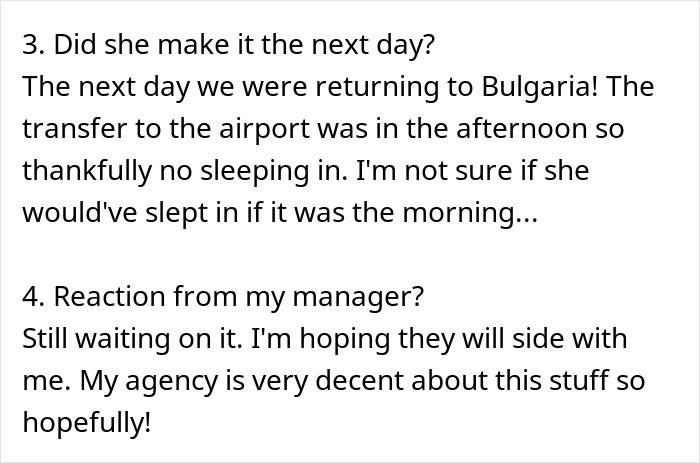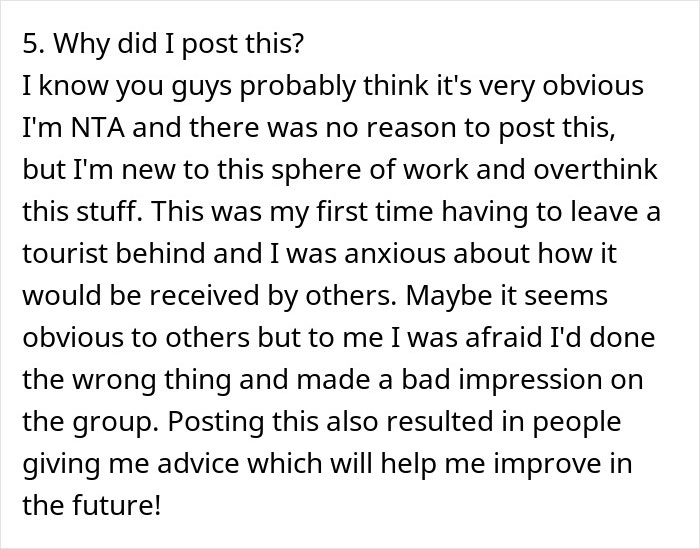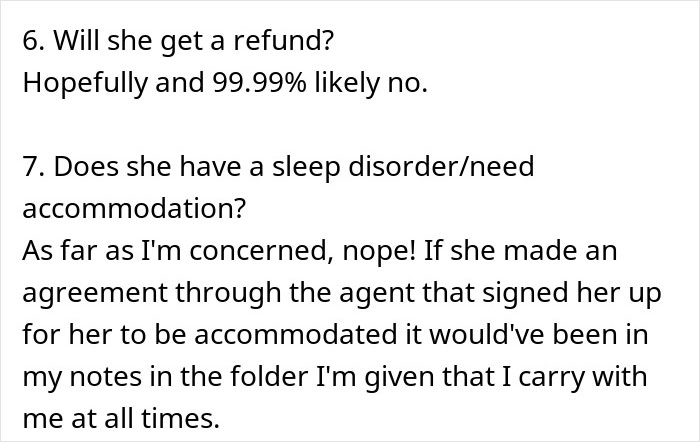Many adults aren’t getting enough sleep, which can make hitting the snooze button in the morning very tempting. This often results in oversleeping and lateness and sometimes even leads to neglected responsibilities and missed important life moments.
As it happened to this woman, who kept oversleeping on a tour through Sicily, which forced the tour guide to leave her behind. Because of it, she missed an entire day of sightseeing and became infuriated, blaming the tour guide for abandoning her.
Oversleeping can sometimes lead to missing important life moments

Image credits: A. C. / Unsplash (not the actual photo)
As it happened to this woman, who missed sightseeing in Sicily because she failed to wake up on time


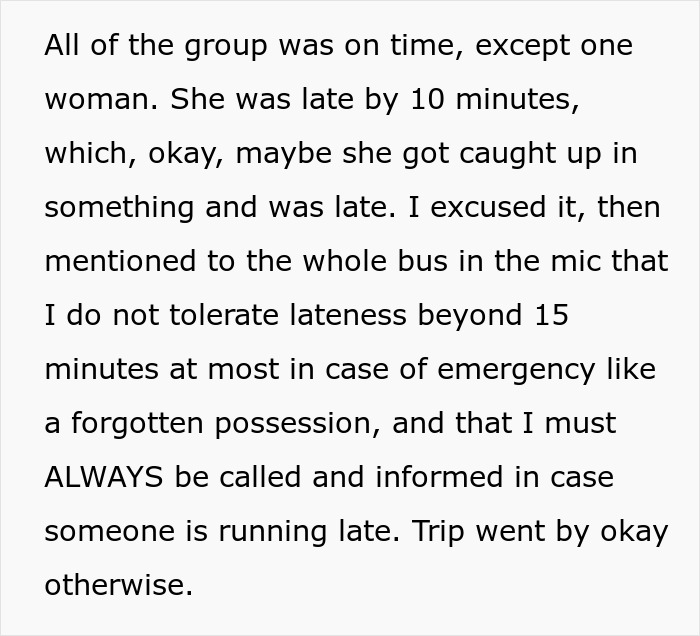

Image credits: rrvachov / freepik (not the actual photo)
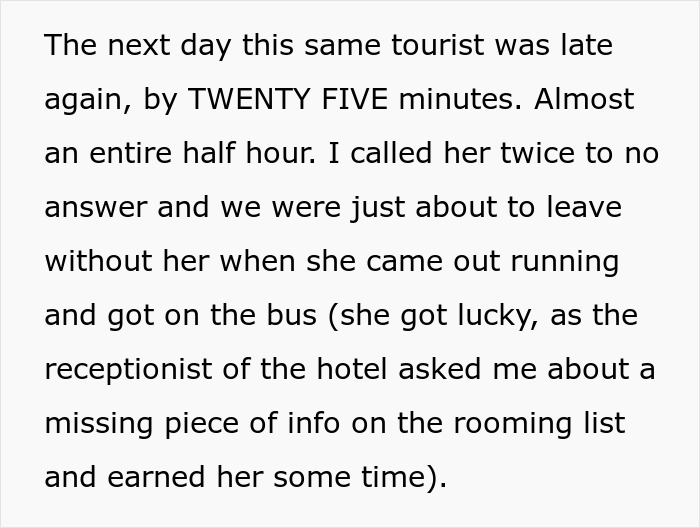
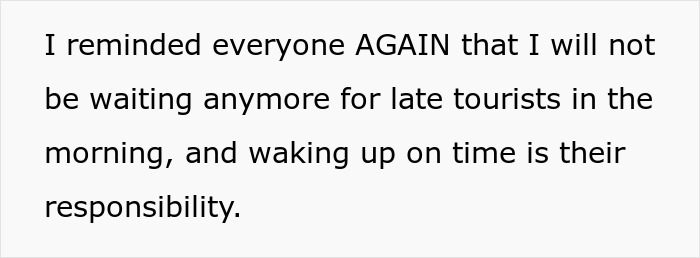
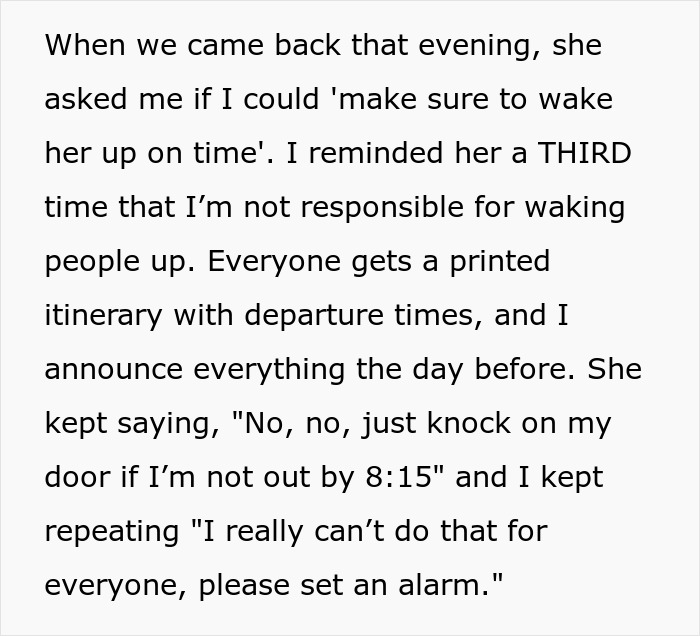
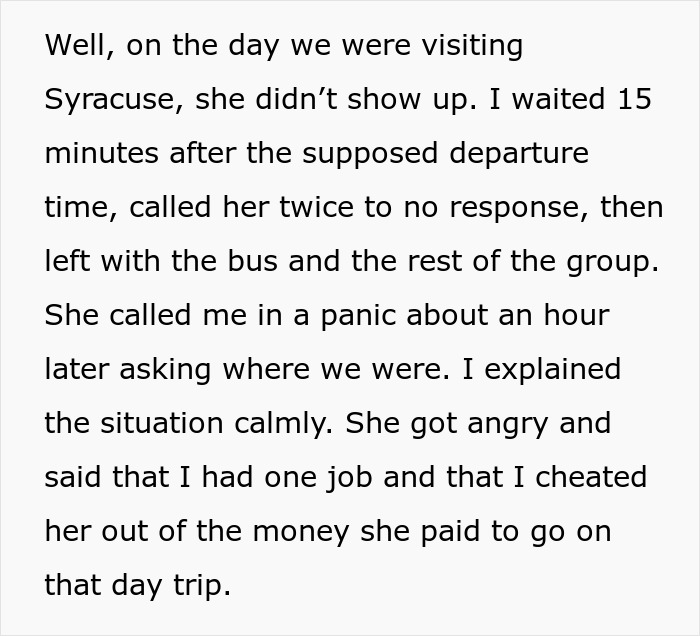
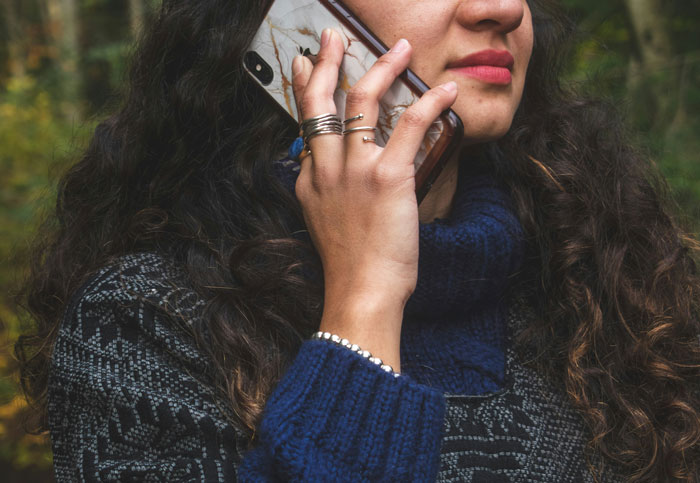
Image credits: Patty Zavala / Unsplash (not the actual photo)



Image credits: Loveylyy
Adults who are in sleep debt are more likely to oversleep
More than ⅓ of adults sleep less than recommended, which is approximately 7 to 9 hours of sleep each night. This may put them into sleep debt or sleep deficit, which can make it harder for a person to wake up in the morning and feel more tempted to hit the snooze button.
In fact, one study found that 57% of their participants were habitual snoozers—showing just how common it is. “So many people are snoozing because so many people are chronically tired,” said Stephen Mattingly, lead author of the study. “If 1 in 3 people aren’t sleeping adequately, that means a lot of us are turning to other means to manage fatigue.”
In some cases, snoozing and oversleeping may simply be the result of catching up on sleep, especially when a person is in a sleep debt because they stayed up late due to various reasons. But when oversleeping becomes a frequent occurrence, more serious causes can be hidden behind the scenes, such as sleep disorders, depression, or taking certain medications and substances.
It’s important to have a regular sleep schedule and avoid chronic oversleeping, as it can not only result in lateness, neglected responsibilities, or missed important life moments and opportunities but also have a negative impact on our mental and physical health.
“Sleeping too much to the extent that it makes someone socially dysfunctional, disrupts routine and causes avoidance of routine activities, could be a serious underlying issue,” said Dr. Jagdish Khubchandani, professor of public health at New Mexico State University. “Just like sleep deprivation, oversleeping is associated with heart disease, obesity and chronic diseases, and mental health issues.”

Image credits: Getty Images / Unsplash (not the actual photo)
Embracing a few healthy habits can help regulate a sleep schedule
If a person doesn’t have underlying health issues, there are a few habits that can regulate their sleep schedule and help them wake up more easily in the morning. The first and most important thing that experts recommend is having a consistent sleep schedule. This means going to sleep and waking up at the same time every day, even on weekends. Avoiding staying up late and oversleeping can help to re-establish a healthy, natural sleep routine.
Something that can help to maintain the routine is getting as much daylight in the first half of the day as possible by taking a morning walk or trying to spend more time near a window. Also, try dimming the lights in the evening and avoid being on the phone before your bedtime. The light can disrupt your rest, while a dim environment sends signals to the brain that it’s time to sleep, which may help you fall asleep and wake up earlier.
In addition, creating a relaxing bedtime routine that involves something enjoyable and opting out of screens may help to wind down and improve sleep quality, and make waking up easier. It should include calming activities, like listening to soothing music, journaling, having a bath, or meditating.
An extra tip that might aid in keeping up a healthy sleeping routine is going to bed when you feel sleepy. If you get into bed at a certain time because you want to fall asleep and you don’t doze off right away, lying awake may add to anxiety and insomnia. Instead, wait for the drowsiness to come and then get into bed—this can contribute to keeping a regular wake time, too.
The last trick that may leave oversleeping in the past is changing up your alarm. Once you get used to the sound of your alarm, you might start to tune it out. Switching it up can help you pay more attention to it. If that doesn’t work, try using an alarm clock that isn’t integrated into your phone. Studies have shown that people who use a physical alarm clock tend to oversleep less than those who use their smartphones.
Some commenters were on the guide’s side

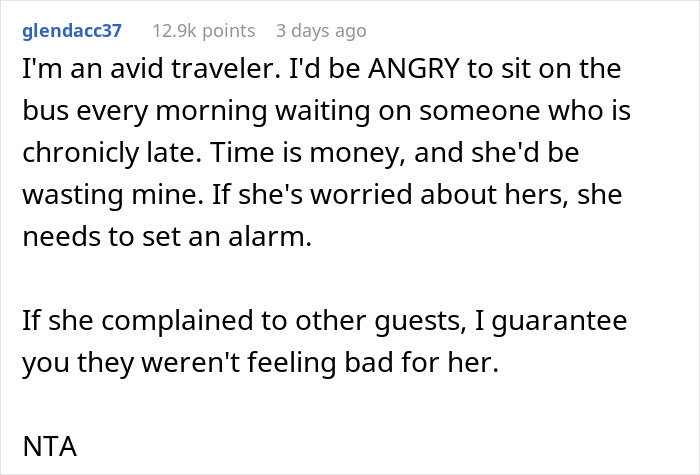
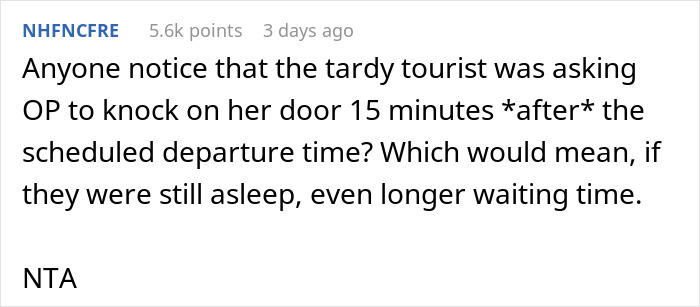


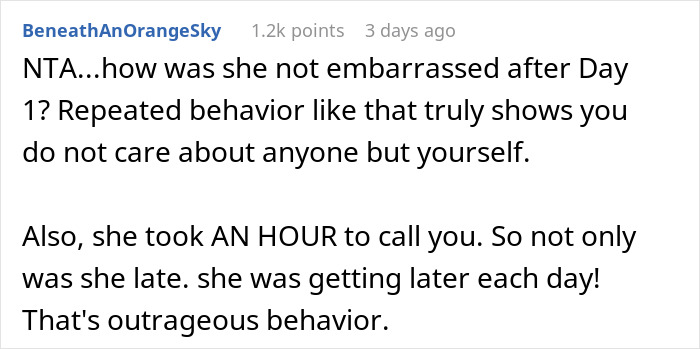



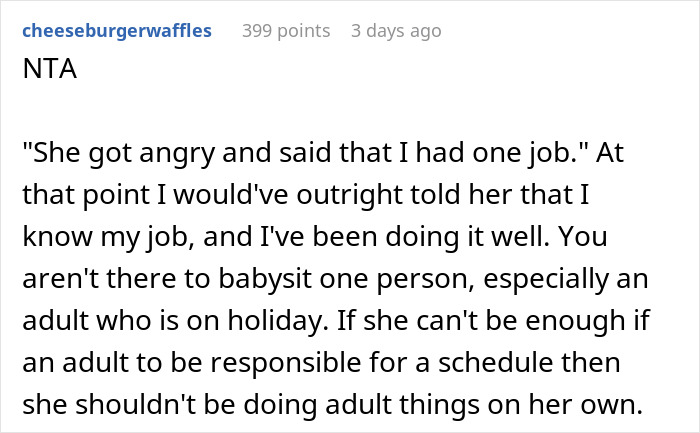
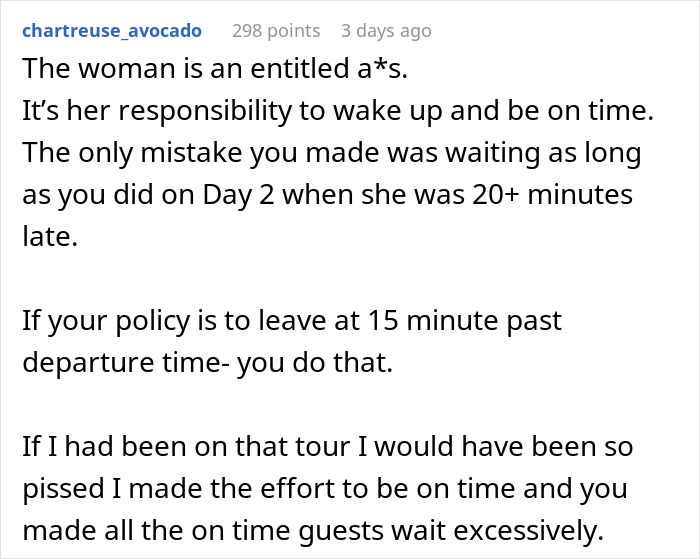
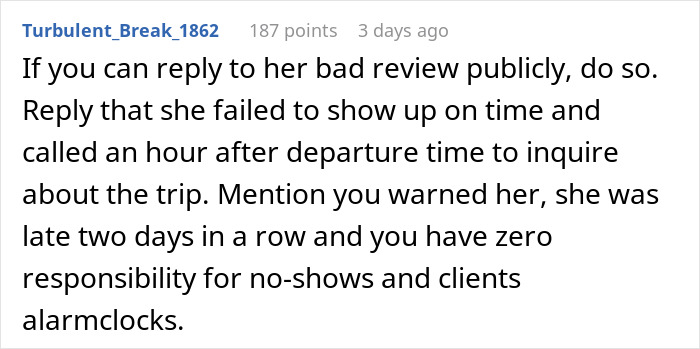
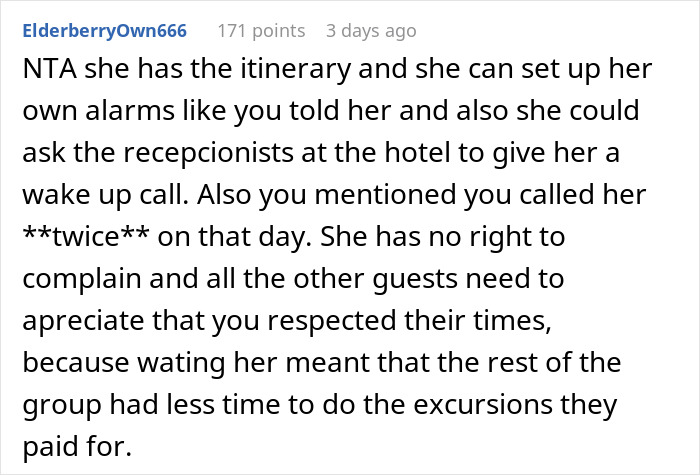

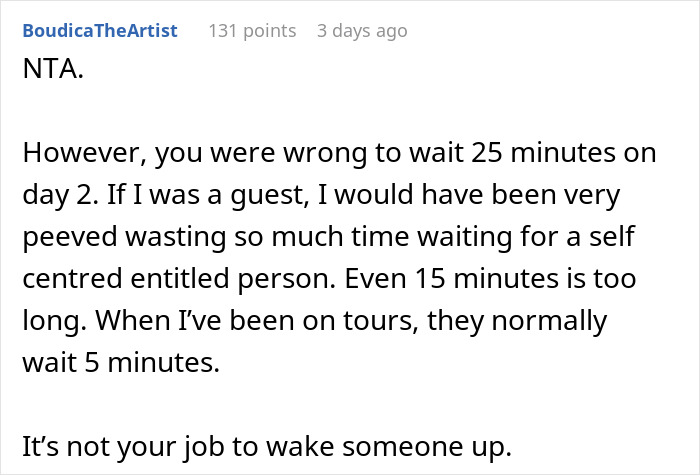


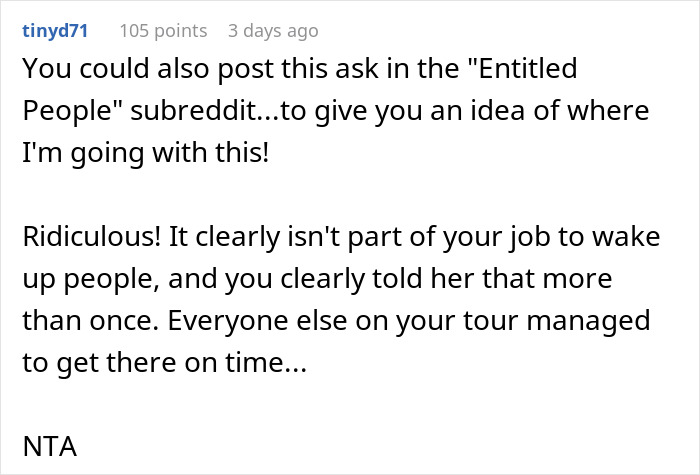



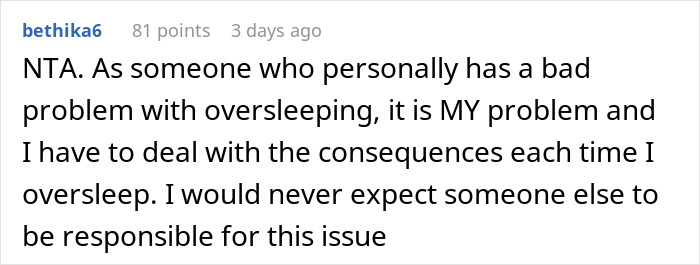
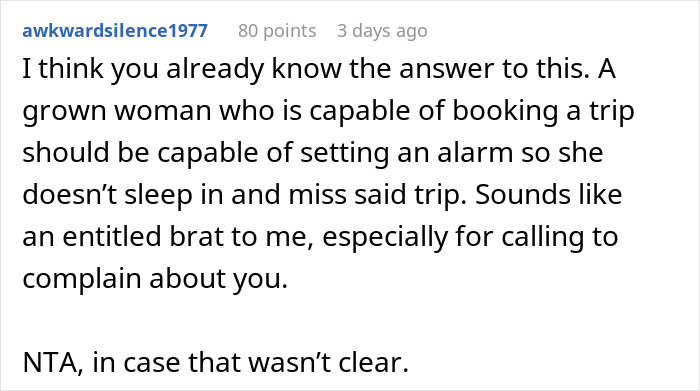
Others thought it was both of their fault
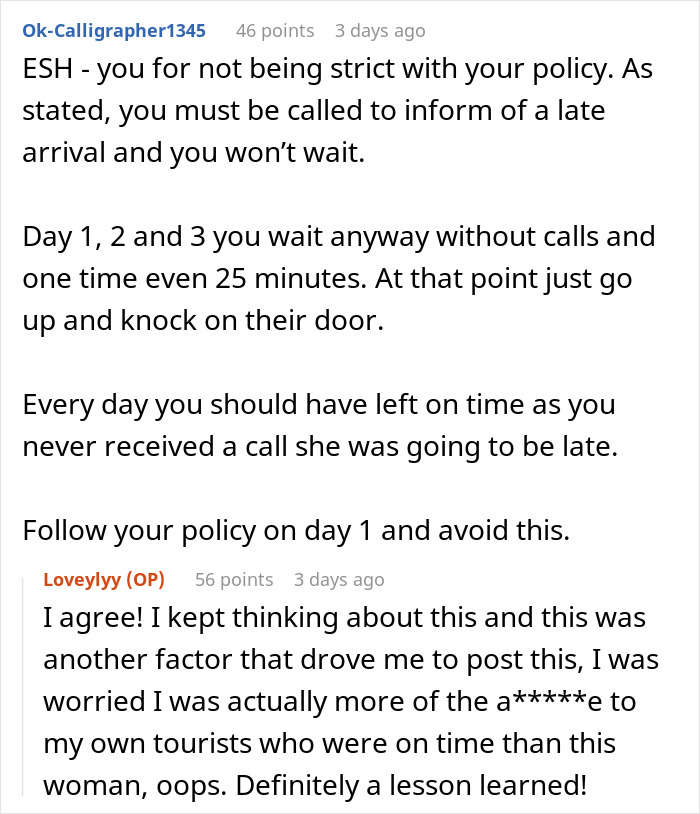
While some blamed the guide

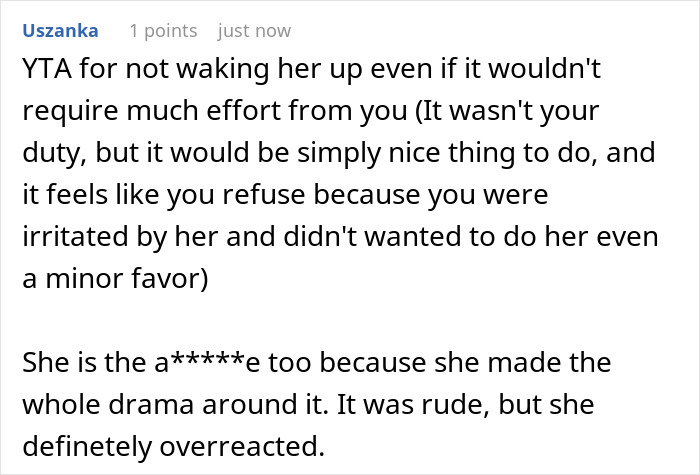

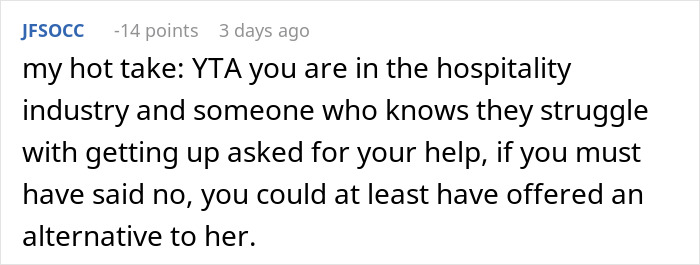
Later, the guide also answered some of the most burning commenters’ questions

